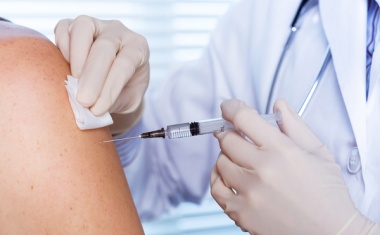
Phytoinitiator mRNAs as a Game Changer in Agriculture
Unlocking nature’s resilience: phytoinitiator mRNAs empower plants to thrive in deserts, saline soils, and harsh climates—no gene editing required.

Unlocking nature’s resilience: phytoinitiator mRNAs empower plants to thrive in deserts, saline soils, and harsh climates—no gene editing required.

Ethris and Lonza have teamed up to develop room-temperature stable, spray-dried mRNA vaccines for respiratory diseases. This collaboration aims to create mucosal delivery formulations, offering a promising new approach to combat respiratory illnesses.

Touchlight, a UK-based custom development and manufacturing organization (CDMO) specializing in enzymatic DNA production, signed a license agreement with British drugmaker GSK which grants GSK non-exclusive rights to use Touchlight’s proprietary enzymatic dbDNA (doggybone DNA) technology for the development and production of mRNA-based products.

German chemicals, pharmaceuticals and life sciences group Merck entered a non-binding Memorandum of Understanding (MoU) with Afrigen Biologics to support the development of an mRNA vaccine technology platform. The collaboration is aimed at advancing mRNA platform manufacturing capabilities, scaling up production, optimizing processes, and providing troubleshooting expertise, the companies said.

German biotech company BioNTech and the Coalition for Epidemic Preparedness Innovations (CEPI) are expanding their strategic partnership to contribute to building a sustainable and resilient end-to-end African vaccine ecosystem. The partners said that CEPI will commit up to $145 million to support BioNTech to establish mRNA vaccine R&D as well as clinical and commercial-scale manufacturing capabilities at the company’s facility in Kigali, Rwanda.

mRNA-based vaccines against the coronavirus have become firmly established in medicine since the pandemic. Nevertheless, the technology is still at the beginning of its potential. Experts see a wide range of potential applications for this relatively new technology, particularly in infectious diseases and cancer.

Swiss contract development and manufacturing organization (CDMO) Lonza will collaborate with Oxford Nanopore Technologies, a UK-based company delivering a new generation of nanopore-based molecular sensing technology. The collaboration aims to cGMP validate and commercialize a first-of-its-kind novel test to accurately determine multiple critical quality attributes of mRNA products by directly sequencing both the DNA template and the messenger RNA (mRNA).

US vaccine maker Moderna and German biotechnology company Immatics agreed on a broad multi-platform research and development collaboration for novel cancer therapies, combining Immatics’ TCR platform with Moderna’s mRNA technology. The project spans various therapeutic modalities including bispecifics, cell therapy and cancer vaccines.

After building up manufacturing footholds outside the US, including in Australia, Kenya, South Korea, Canada and the UK, vaccine specialist Moderna is planning to build a new plant closer to its home base in Cambridge, Massachusetts.

The market value of US vaccine maker Novavax is gaining momentum again on the back of promising data the company recently provided on its combined Covid and flu vaccine data.

US vaccine maker Moderna has chosen the Harwell Science Campus in Oxfordshire, England, as the location for its planned UK Innovation and Technology Center which is expected to be in operation by 2025.

German biotech CureVac has released preliminary data from its ongoing cooperation with UK drugmaker GSK on a new class of “transformative medicines” based on messenger mRNA.

German Covid-19 vaccine specialist BioNTech has acquired a production facility in Singapore from Swiss drugmaker Novartis that will serve as a manufacturing base in addition to being its Asia-Pacific headquarters.

As had been widely expected, the US Food and Drug Administration (FDA) on Aug. 31 granted emergency use authorizations (EUAs) to the new Covid-19 shots developed by mRNA vaccine makers Pfizer-BioNTech and Moderna.

CureVac and GSK have announced they are launching a Phase 1 clinical trial with their modified mRNA-based Covid 19 vaccine CV051, which would be recommended as a booster to protect against the omicron variant.

The strategic partnership of Boston-based US biotech GreenLight Biosciences and Korean CDMO Samsung Biologics has completed the first commercial-scale engineering run for its mRNA production.

UK specialty chemical company Croda International will receive up to $75 million from the US government to expand its US capacity to produce ingredients for lipid systems used in novel therapeutic drugs, such as mRNA vaccines.

A year ago unthinkable, the market for mRNA-based Covid-19 vaccines appears to be headed for saturation, even though, or perhaps because, there now seem to be more products on the market than first-world consumers want or need.

French drugmaker Sanofi plans to invest around €400 million annually in a center of excellence for mRNA vaccines that it hopes will accelerate the development and delivery of the next-generation vaccine portfolio it has built up in collaboration with US biotech Translate Bio. The company said the project will be “fully financed” through resource reallocation.